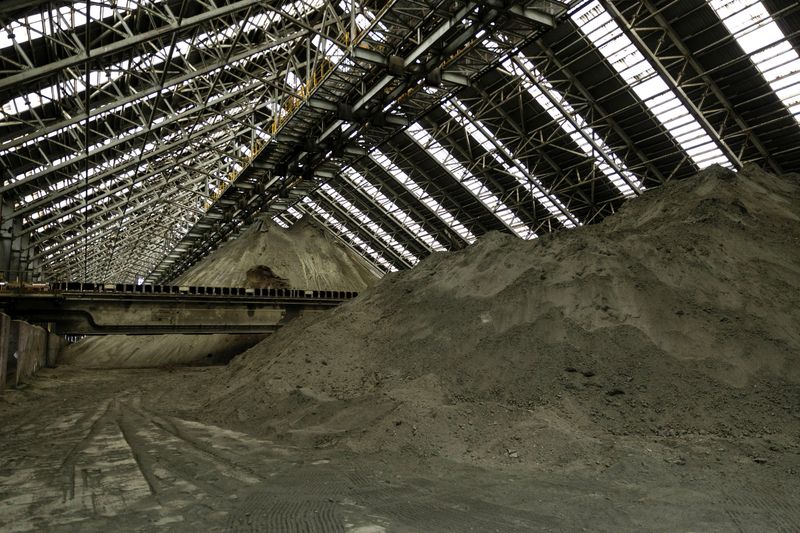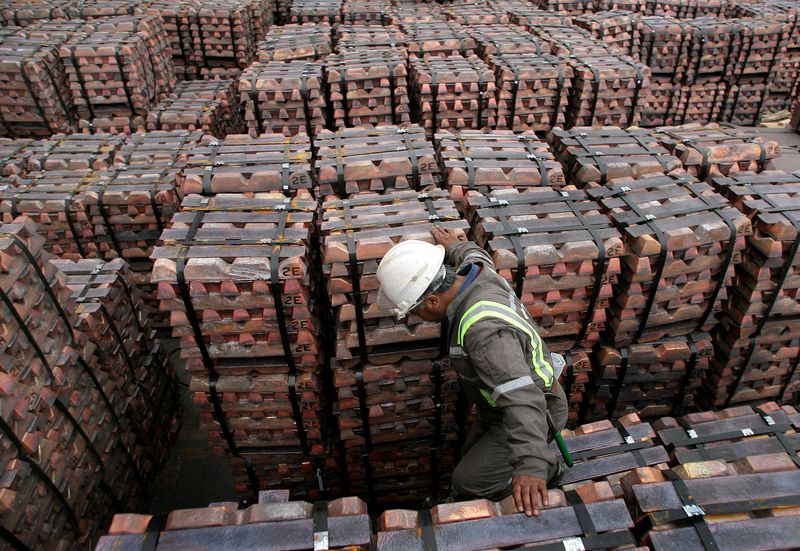By Pratima Desai
LONDON (Reuters) - Upward momentum that has propelled copper prices to within a whisker of the psychological $10,000 a metric ton mark is expected to be sustained by the appearance of shortages over the coming months.
Copper prices have recently been bolstered by expectations of tight supplies and optimism about demand prospects from energy transition applications such as electric vehicles and new technology such as artificial intelligence and automation.
A pick-up in manufacturing activity, particularly in top consumer China where surveys of purchasing managers have started to show expansion has also contributed to enthusiasm for copper which this week hit a two-year peak at $9,988 a ton for a gain of 25% since early October.
Prices accelerated higher last year after the prospect of shortages of copper concentrate, a feedstock for metal, was raised by the closure of Canadian miner First Quantum (NASDAQ:QMCO)'s Cobre mine in Panama.
"The overarching reality is that we've lost a million tonnes of supply to mine disruptions and the industrial cycle has turned a corner," said Piotr Ortonowski, analyst at Benchmark Mineral Intelligence.
"The long-term energy transition demand story against a backdrop of underinvestment in new mine supply remains intact."
Copper's gains have been partly triggered by the reversal of short -- bets on lower prices -- positions taken when the outlook for Chinese demand looked decidedly gloomy due to shrinking manufacturing activity.
"Prices moved up really fast in the last few weeks, we should expect a correction," a copper trader said.
Copper prices on the London Metal Exchange (LME) are now around $9,644 a ton.
Interest rate cuts in the United States, Europe and elsewhere also offer potential for growth and demand.
Copper industry sources say tight supplies will soon be seen in draws on stocks in LME approved warehouses and those monitored by the Shanghai Futures Exchange.

Jay Tatum, portfolio manager at Valent Asset Management said copper metal scarcity would be the real test of whether copper prices can be maintained "and go higher".
"Copper is transitioning from an investment story that made a lot of promises, to one where some of those promises are starting to be delivered on -- rising copper intensity across the economy, supply side challenges, concentrate tightness and restocking effect after a long manufacturing slowdown."
